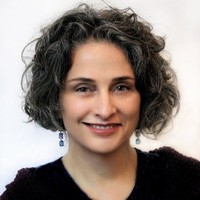My first editor worked with me on five revisions of my debut story in a major magazine. Decades later, when I wrote about him, I understood what had inspired his stamina: my trying and failing and trying again to express what I wanted to say. The piece wasn’t spectacular, but it launched my career and established my admiration for what editors can do for a writer’s development. He demanded clarity of thought and precision in language; I used them to pitch and write everything that came afterwards.

I’ve worked with two kinds of editors, copy editors and developmental editors. A copy editor focuses on content and clarity once you have a complete manuscript draft. A developmental editor is a mentor and colleague in the earlier stages of a writing project. Their job is to elevate your work, making it more salable while preserving your voice and angle of vision.
A developmental editor understands the scope of published writing in your genre and the narrative structures and language choices other authors have made. Whatever their background or expertise, and whether they are a writer or not, it is attention to the possibilities of language that draw people to this line of work.
Up front, expect to share the pages you’ve written and a sketch or outline, of how you envision moving forward. The editor must see beyond the writing you’ve done to the work you haven’t yet realized. In both fiction and nonfiction, they offer guidance about whether your language is in the appropriate register for the audience you envision. They comment on the order and flow of your chapters, and within each chapter, the logic or emotional arc of each scene.
Expect your editor to ask about the audience you aspire to reach. If, for example, you’re an expert in physics or psychology, or any kind of academic professional, you will want to decide whether you’d like your book to appeal to academics or a “trade” audience. It helps if you can mention the writers you most admire who have written books your desired audience will have read. In nonfiction, have they read Malcolm Gladwell? Ta-Nehisi Coates? Elizabeth Kolbert? In fiction, have they read Walter Mosely? Tania French? Eleanor Catton?
However, your editor need not be an expert in your subject. If you are writing nonfiction and attempting to reach an audience of non-experts, an effective editor will guide you in explaining your subject to the non-expert in a compelling way. They will insure that the reader can follow your train of thought.
The critical tool for the developmental editor is the question. Your editor’s questions should provoke you to examine how you’ve expressed your ideas and in what order. In my work as a development editor, my notes to writers are littered with questions. “What are you trying to achieve by including a supernatural scene so early in the story?” “What would happen if we already knew the husband was corrupt?” In the case of a psychologist with whom I’m working, I asked, “What is narcissistic rage? How is that different from anger?” No matter how you respond to their questions, working with an accomplished editor will help strengthen your appeal to the readers who are your market and heighten the possibilities you see before you.
The most sterling references for editors are other writers. Ask writers you know, including those you may have met at conferences and workshops. Responding to an ad without further information is not the best idea, because it’s important to hear about the kind of relationships an editor forms with writers.
Frankly, you want to hear about credentials and character. The Cambridge Academic Editors Network [CAEN], offers information on choosing an editor as well as a list of editors organized by specialty. As the name suggests, CAEN editors have academic backgrounds and don’t all work with writers targeting a more popular audience. I, however, happen to editor both sides. Many editors do.
For more information about hiring developmental editors, see:
https://janefriedman.com/before-you-hire-a-developmental-editor-what-you-need-to-know/
https://writingtipsoasis.com/best-developmental-editors/
https://www.writersdigest.com/write-better-fiction/why-its-okay-to-hire-a-developmental-editor-and-not-keep-it-a-secret
Bio:
Jayne Benjulian is the author of dozens of essays and the poetry collection, Five Sextillion Atoms. “Diamond edged, fiercely honest, Benjulian’s work pulses with lyric intensity.” -Daniel Tobin. “A highly distinctive and gripping book notable for the ways in which it combines the stories of family history with larger matters of public history…. Benjulian has terrific skills as a portraitist and satirist.” -David Wojahn. Benjulian served as chief speechwriter at Apple; Teaching Fellow at Emory University; Visiting Professor in the Graduate Theater Program at San Francisco State University; and Fulbright Fellow in Lyon, France.
Leave a Reply